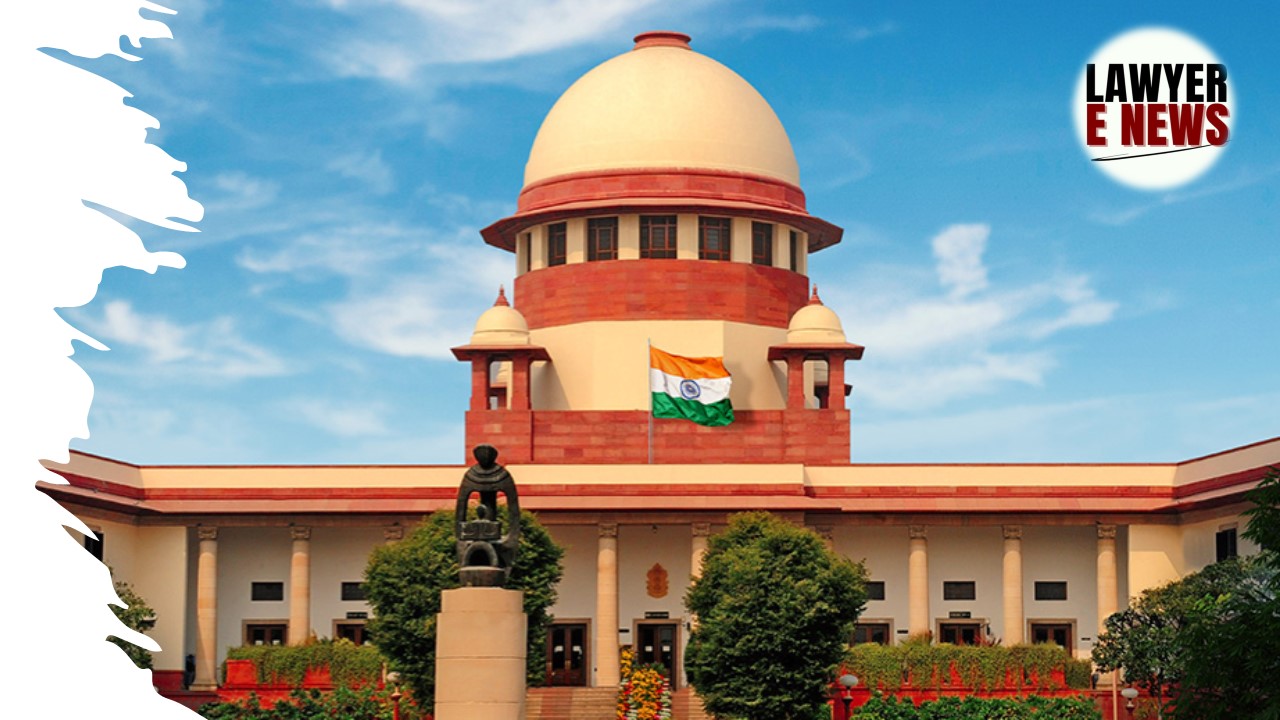-
by Admin
15 February 2026 5:35 AM



The Supreme Court has allowed the appeal filed by Baccarose Perfumes and Beauty Products Pvt. Ltd., quashing criminal proceedings initiated against the company. The Court overruled the Gujarat High Court's dismissal of the company's discharge application, reaffirming the immunity granted to it by the Settlement Commission in 2007. The proceedings were based on allegations of wrongful customs duty evasion through undervaluation of goods. In its judgment, delivered by a bench comprising Justices Abhay S. Oka and Augustine George Masih, the Court emphasized that the charges lacked merit in light of previous legal findings and immunity.
The Central Bureau of Investigation (CBI) alleged that between 2001 and 2004, Baccarose Perfumes conspired with senior officials from the Kandla Special Economic Zone (KASEZ) to evade Countervailing Duty (CVD) on goods cleared for the domestic market. The officials allegedly allowed the company to pay duty based on invoice value rather than the Maximum Retail Price (MRP), causing a loss to the exchequer of INR 8 crores.
The allegations led to the registration of a First Information Report (FIR) under sections of the Indian Penal Code (IPC) and the Prevention of Corruption Act. Despite this, the company had already secured immunity from prosecution through the Settlement Commission in 2007, following settlement of its tax liabilities under the Central Excise Act, Customs Act, and IPC.
Baccarose Perfumes argued that it had already been granted immunity from prosecution by the Settlement Commission in 2007 under Section 32K of the Central Excise Act, a provision mirrored in the Customs Act under Section 127H. These sections bar criminal prosecution if immunity has been granted post-application. The Supreme Court agreed with the appellant, noting that "continuation of such a prosecution would be inconsistent with the intent and provisions of the law".
The Court highlighted a key legal principle regarding the initiation of criminal proceedings, observing that the mere filing of an FIR does not amount to prosecution. "A registration of FIR necessitates an investigation by a competent officer as per the detailed process outlined in Sections 155 to 176 [of the CrPC]. It is only after a final report or charge sheet is submitted... that cognizance of the offence is taken," the bench noted. Since Baccarose Perfumes had already secured immunity before formal prosecution, the charges could not stand.
The Court further relied on precedents such as Hira Lal Hari Lal Bhagwati v. CBI to conclude that once a company secures immunity through settlement, any subsequent prosecution would amount to abuse of legal process. The bench emphasized that this immunity extended to all statutory and criminal proceedings related to customs and excise duties.
The central issue was whether the company was liable for paying CVD on the MRP instead of the invoice value. The Commissioner of Customs (Appeals) had earlier ruled that Baccarose was not required to pay CVD based on MRP. The Court noted that the company had even paid INR 1.51 crores during the investigation, part of which was eligible for a refund. This, combined with the fact that the company had secured immunity, invalidated the grounds for prosecution.
The CBI's case relied on allegations of conspiracy between Baccarose Perfumes and KASEZ officials. However, the Court noted that sanction to prosecute the officials under the Prevention of Corruption Act had been denied. Without prosecution of the public officials, the case against the company also fell apart.
In its ruling, the Court stated, "The prosecution sanction as sought against the officials of KASEZ, who were said to have committed the offences under the Prevention of Corruption Act, stood declined. In light of this... the application for discharge, as moved by the Appellant-Company, ought to have been accepted by the learned Special Judge." The judgment reiterated that the company's prosecution was baseless due to the lack of fiscal liability and immunity from the Settlement Commission.
The Supreme Court's decision quashing the criminal proceedings against Baccarose Perfumes underscores the legal significance of immunity granted by settlement commissions. By setting aside the orders of both the Gujarat High Court and the Special Judge, the ruling reinforces the sanctity of immunity provisions in tax-related matters. This judgment will likely have broader implications for cases involving immunity from prosecution after settlements under the Central Excise and Customs Acts.
Date of Decision: September 6, 2024.
Baccarose Perfumes & Beauty Products Pvt. Ltd. vs Central Bureau of Investigation & Anr.
